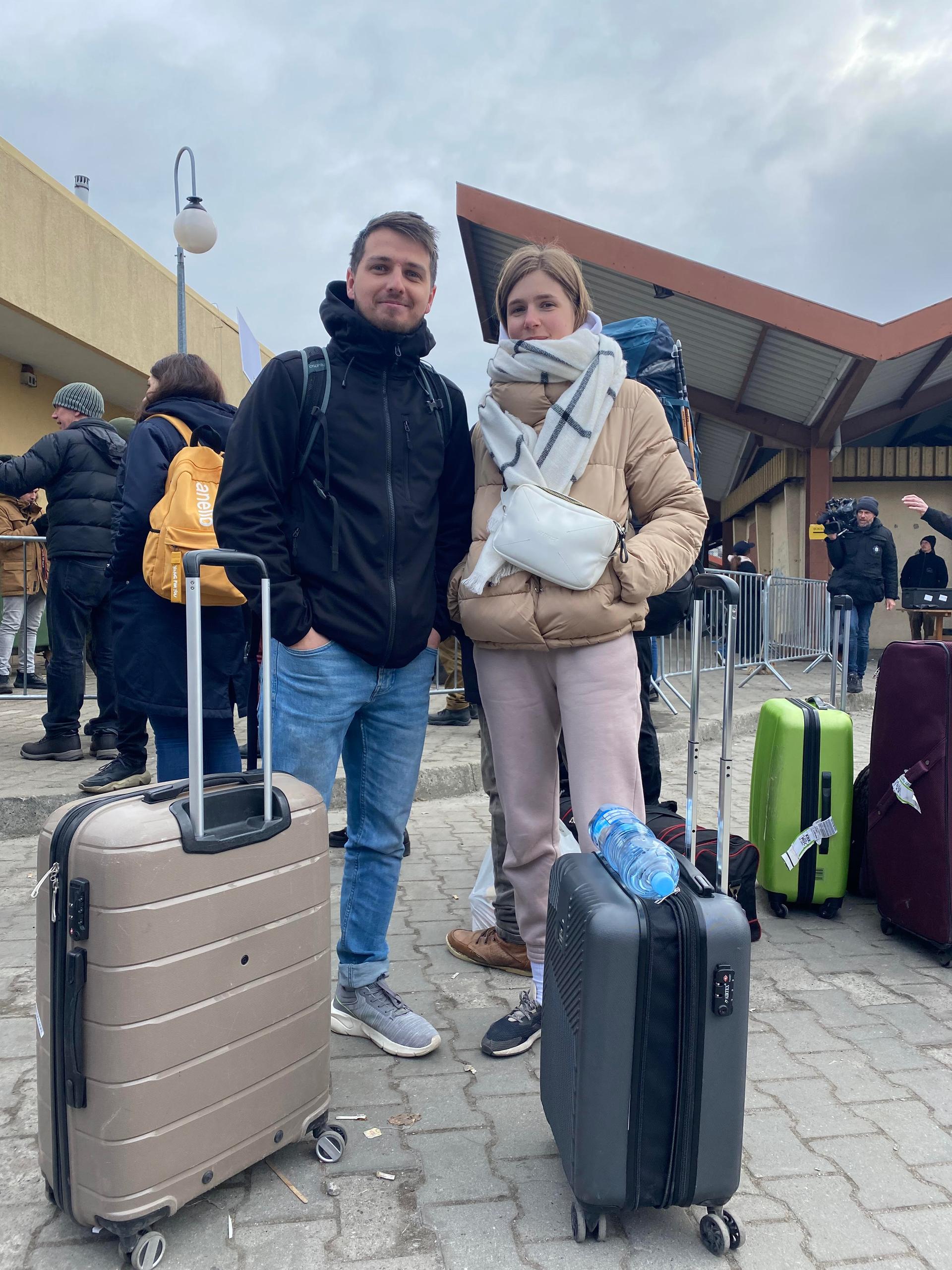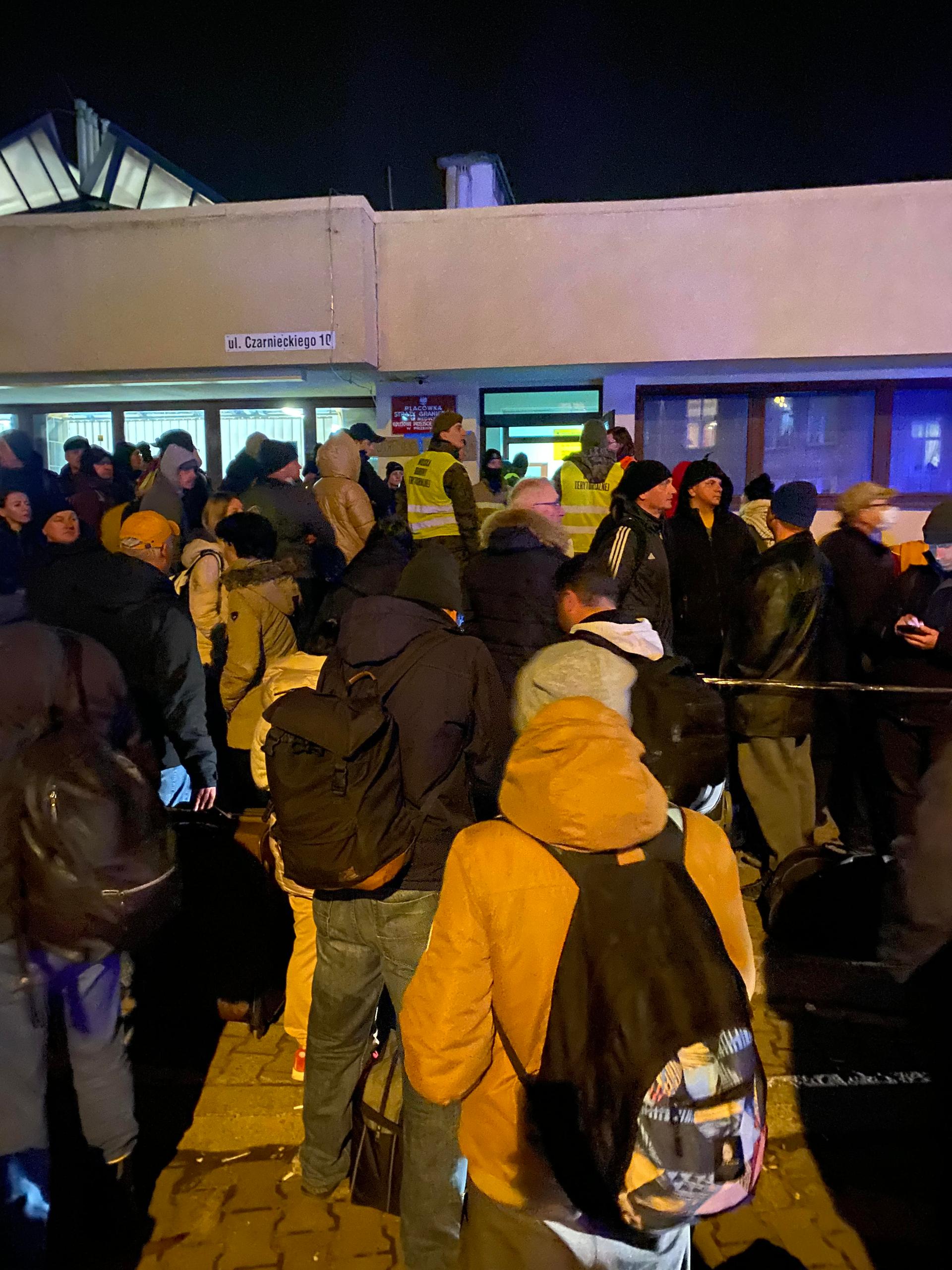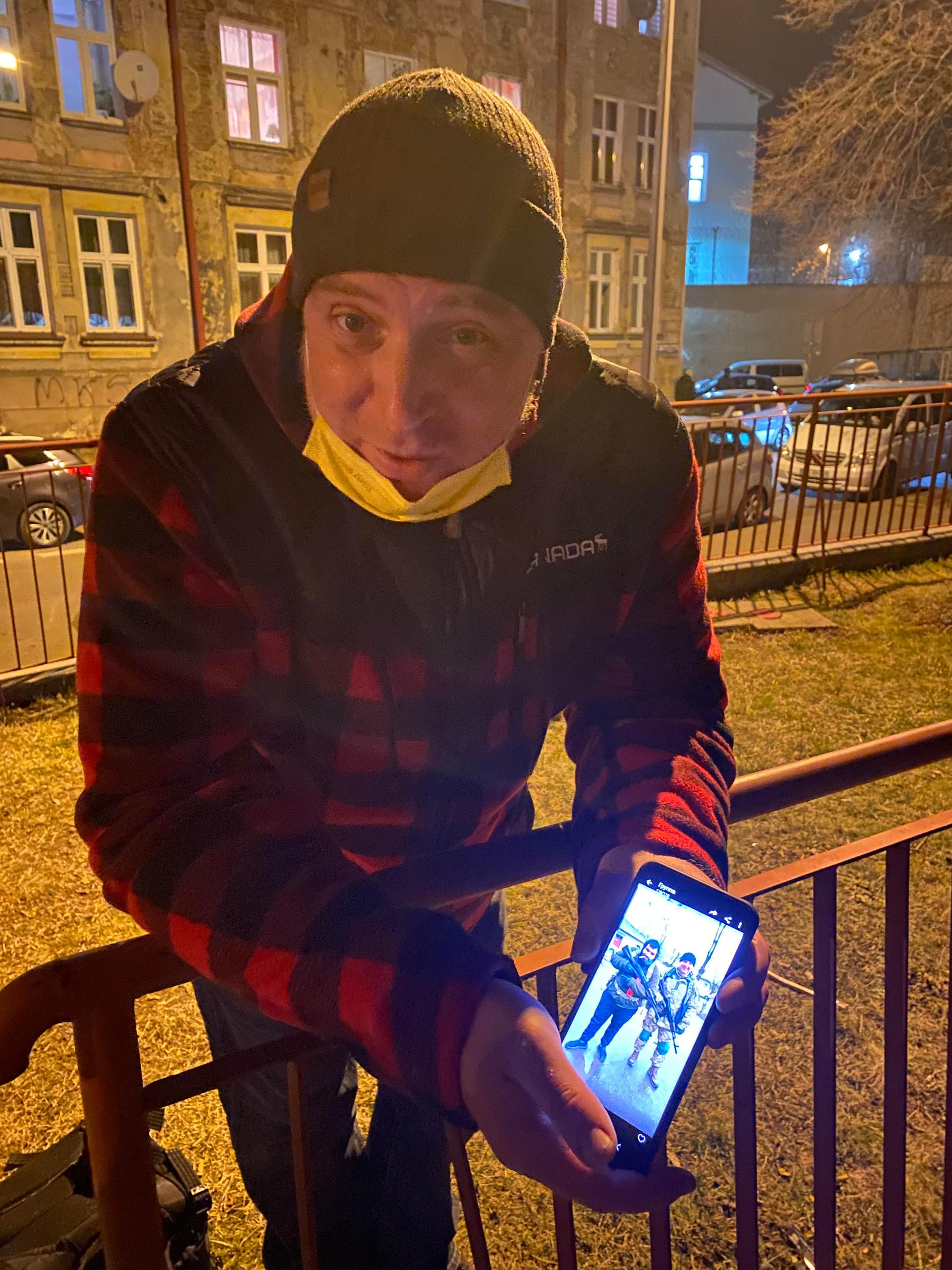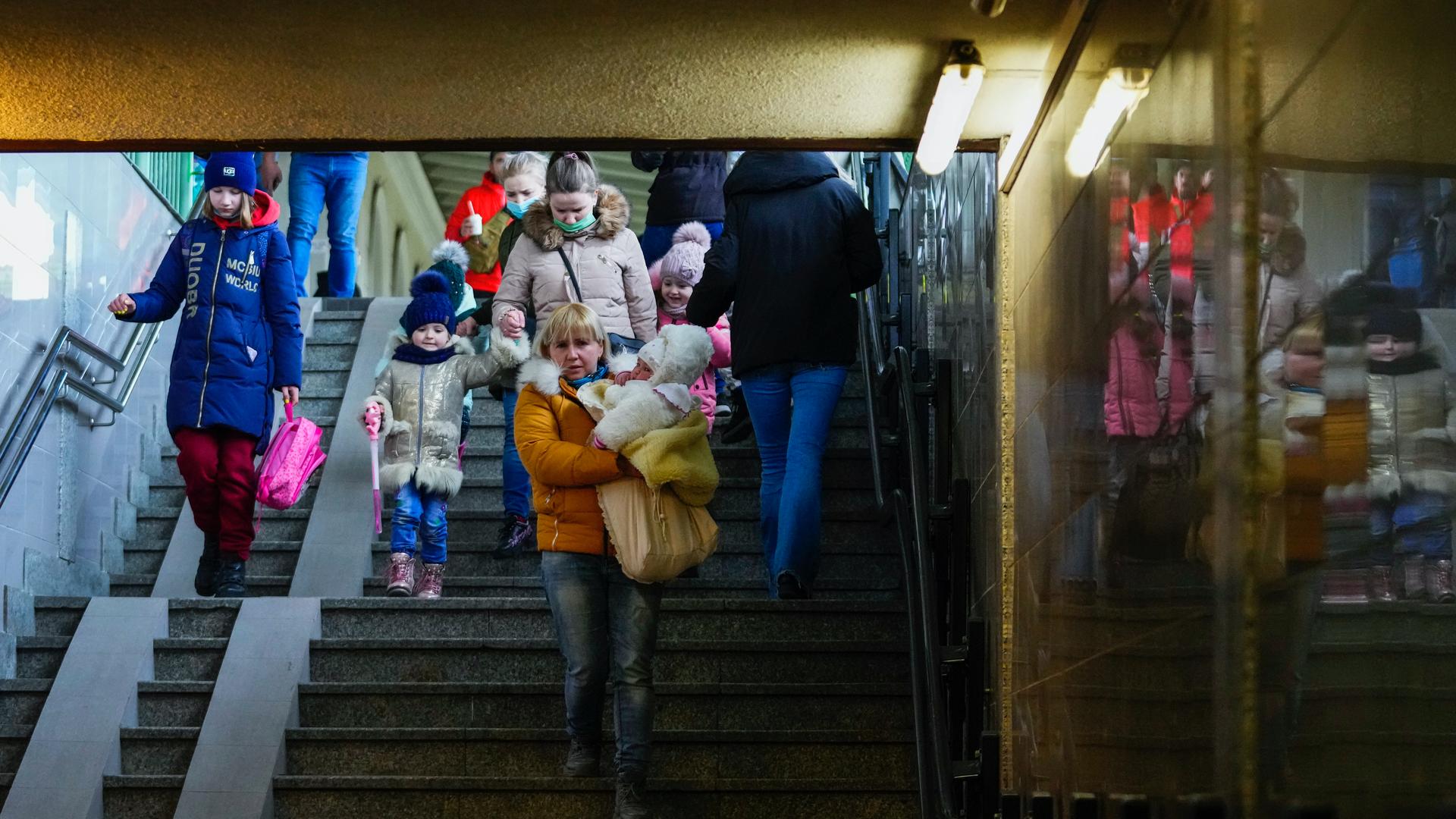Last Thursday, Natalia Osinchuk was on vacation with her boyfriend, Yevhenii Vladimirtsev, in Sri Lanka. And then, war broke out in their country, Ukraine.
“The vacation was great but after the news, it wasn’t enjoyable anymore, so we just changed our ticket and headed back,” she said.
And while 1 million people have fled Ukraine, according to the UN, the couple was among a number of people at the Przemysl station on Wednesday who were going in the opposite direction — back home, where Russia began its invasion a week ago.
Related: There’s a double-standard when it comes to media coverage on refugees, analyst says
After several flights and a long car journey from Budapest, the couple planned to get a train back to Lviv, the city in western Ukraine where they live and work as software developers.

Osinchuk, 24, said that she will volunteer to assist the army and refugees escaping Ukraine.
Ukraine’s army has distributed weapons to anyone who wishes to defend the country and has deployed thousands of reservists.
Related: ‘The Kremlin really controls the armed forces of Belarus,’ analyst says
Osinchuk’s and Vladimirtsev’s suitcases were full of rechargeable battery packs, which they said they will distribute to friends and family.
“Who knows what’s going to be next; maybe we’ll have no electricity in the future,” Vladimirtsev, 23, said.
Vladimirtsev is young enough to be drafted into the army. He said that he doesn’t relish the prospect, but he’s ready to answer the call if it comes.
“I met a British guy who is going to Ukraine right now to fight on a voluntary basis. That motivates me. If someone from Britain is ready to go and fight Russia for me, for my people, why wouldn’t I do that?”
“I met a British guy who is going to Ukraine right now to fight on a voluntary basis,” he said. “That motivates me. If someone from Britain is ready to go and fight Russia for me, for my people, why wouldn’t I do that?”
Ukrainian President Volodymyr Zelenskiy has defiantly remained in Kyiv even as it falls under daily attack. A few days ago, he banned men of military age from leaving Ukraine and encouraged foreign fighters to come and help defend the country.
It’s a message that resonated with others at the train station.
Like Alex Sokol, who was skiing in the Pyrenees when Russian forces invaded Ukraine. Sokol, who was at the train station, decided to head back home to Kyiv, though he has no military background.
“I have seen weapons only on TV. It’s better to give weapons to people who are experienced,” he said. “But there’s lots of other things I know how to do. So, I will do them, to help my country.”
Sokol, 45, works as a human resources manager in a Ukrainian bank. His family is in the capital, Kyiv.
Related: The invasion in Ukraine could mean less reliance on energy from Russia, analyst says
They asked him to stay out of Ukraine, “but I can’t. In this situation, it’s better to go and do something rather than just sitting and watching the news.”
On Tuesday in Kyiv, a Russian airstrike hit a TV tower that also damaged Babyn Yar, the nearby Holocaust memorial. According to Ukrainian officials, five civilians were killed in that attack.

Ukraine has not disclosed its military losses altogether but said more than 2,000 civilians have died, a claim that could not be independently verified. Russia has said that nearly 500 of its troops have been killed and almost 1,600 wounded.
Related: Ruble plummets as sanctions bite, sending Russians to banks
Envoys from Ukraine and Russia are expected to meet Thursday in Belarus for a second round of talks aimed at ending the fighting. But there appeared to be little common ground between the two sides.
Sokol said that he appreciates all the assistance that Western countries have so far provided but maintained that the most useful support would be to help “close the sky” and protect the country from aerial attacks.
Pavlo, 43, who only gave a first name and stood nearby, pulled out his phone and showed a photo of friends who have been drafted into the army, seen smiling and wielding Kalashnikov rifles.

Pavlo works as a merchant seaman and was in the middle of a long voyage through Europe and the Americas when Russia declared war on Ukraine. He came rushing back.
“I will fight, I will build, I will cook, whatever is needed. I only have one motherland,” he said.
Now, he’s on his way to his hometown, the key port city of Odessa on the Black Sea. Odessa has a reputation across Ukraine for a culture with a sense of humor, and it’s the birthplace of many famous comedians.
“I think only fools don’t feel fear. But we will try to laugh. Odessa is a very funny city. We will try to laugh,” Pavlo said.
Katarzyna Piasecka contributed to this report
Our coverage reaches millions each week, but only a small fraction of listeners contribute to sustain our program. We still need 224 more people to donate $100 or $10/monthly to unlock our $67,000 match. Will you help us get there today?
